- Home
- Kathryn Lasky
Felix Takes the Stage Page 3
Felix Takes the Stage Read online
Page 3
Although the shop was filled with spiders, the model ship would provide them with some isolation from the general spider population. Not only that, but this ship would offer a wonderful history lesson. The USS Constitution had distinguished itself in the War of 1812. Edith could not believe the lengths to which the model builders had gone to copy the original vessel. There were tiny, plush, red velvet cushions on the settees that edged the handsomely paneled captain’s quarters. A navigation desk the size of a postage stamp had a set of navigation tools all made to scale: a tiny sextant used for measuring the angle of the sun or a star from the horizon, a ruler, a divider for measuring distances on a chart, and the chart itself. Hanging on the wall above the desk were even two miniature gleaming cutlasses.
Edith decided that first she would spin a web just over the settee, where a lovely set of fanlight windows curved so the captain could look out at the wake of his ship. She suspended herself mid-weaving to peer out and imagine an ocean with rolling waves cut by frothy foam from a ship under sail. Suddenly, a luminous green light flowed in through the windows.
“Oh, Fatty, isn’t this cabin lovely!”
Fat Cat had hopped up onto the table where the ship model was perched and was peering through the stern windows.
“Yes. And although I have never had children, I do believe mothers need a little alone time,” he said.
“Indeed!”
But just as Edith wove the last strand of her web, a voice piped up.
“Mom!”
“Felix! I thought you wanted to sleep topside, in the rigging.”
“My leg hurts.”
“It can’t hurt.” Jo Bell swung in on a thread of silk that she quickly anchored to one of the tassels on the plush pillows.
“What do you mean ‘it can’t hurt’?” Felix huffed.
“Your leg, in case you have forgotten, is back at the philharmonic!”
“Phantom pain,” Fatty offered from the stern.
“You mean like a ghost?” Julep asked, crawling down from a hatch over the navigation table.
“And what are you doing here, Julep?” Edith asked.
“I didn’t want to sleep up there all by myself.”
“Not too near those cutlasses, Felix,” Edith cautioned. Although they were only models, they looked quite sharp.
“Julep, I thought you wanted to sleep in the lookout place, the crow’s nest, at the top of the mast!” Jo Bell said. “Julep made this big deal about sleeping in it. And actually I was the one who had dibsed it.”
“You did not!” Julep shot back.
“Did, too.”
“Did not!”
“Did, too!”
“Did not!”
“Children! Children! Quit this squabbling,” Edith commanded. “And, Felix, get that line you just floated away from the cutlasses.” Then she muttered to herself, “So much for peace and quiet!”
The flashing lights of an ambulance swept through the storefront window. The family fell silent.
After a frozen minute, Jo Bell said, “They must be taking the Maestro away now.”
“I hope he lives,” Felix said with a sob threatening to burst like a small thundercloud. “He was so … so …”
“Gifted,” Fatty finished the thought.
But Edith was not thinking about the Maestro at all. She was listening to the slow grind of the fire truck’s gears as it turned around. Its siren was replaced by the shrill waaaaa! of an ambulance. The fire alarm was false, Edith thought, but how soon would the medics discover the real alarm — those tiny pale drops of blue, the blood of a spider, on the Maestro’s cuff?
“Just a minute, children. I’ll be right back.” Edith used Julep’s dragline to hoist herself on deck, then scuttled up the rigging to the crow’s nest. Although the USS Constitution was on a table toward the back of the store, she had a clear view from her perch. Edith didn’t have to wait long before she spotted the flash of the white truck and the blurred letters on its side. L.A. CHEMICAL. She felt a shiver pass through every hair on each of her eight legs. They’re always so discreet, she thought with contempt. They never advertise what they really do. Fearful of causing a panic, no doubt. For what was more shameful than an infestation, particularly in a temple of art! And now the E-Men were arriving at the philharmonic hall with their poisons. Forget that fund-raising gala next week! They wouldn’t be able to raise a penny for ages. All because of us! she thought mournfully.
The words rattled through her, right down to her spinnerets.
Felix felt awful, and it wasn’t just his leg. He was haunted by his mom’s words. “Felix’s only crime was that he showed himself.” He knew she didn’t really think he was a criminal, but it still hurt. His mother was smart. There was no denying it. But if only she were more artistic. His mom always said that brown recluses were misunderstood. But Felix was misunderstood by his own mother! And there was a crime he was guilty of — causing his family to have to move. They were unsettled! A condition that Edith loathed with all her eight legs, six eyes, and every fiber of her body.
But while Felix was worrying about his mother, Edith was worrying about her son. He had been so quiet since he had arrived in her cabin. And she sensed that it was more than just his leg. She had caught him looking back at the orb weaver’s web. He was one little knotted-up wad of silk.
“How about I tell you children a story?”
“Oh, yes!” they all cried, even Felix.
“Yes, Mom, tell us a story, please! I know it would make my leg feel better,” Felix begged.
“Your late leg, which now resides in the philharmonic hall,” Jo Bell said.
“Stop it, Jo Bell. Stop it this instant!” Edith snapped. Spiders cannot really snarl. Not exactly. But if they want to add an edge to their communications, they can send fierce vibrations through their webs. The children all shut up. A cross fire of glances shot among all three sets of eyes.
After several silent seconds, Felix ventured to speak. “A story would be nice, Mom.”
Then Julep, in a very tiny voice, said, “Maybe the one about the Place Where Time Has Stopped?”
“Oh, yes, I like that story,” Fatty said. He was still perched on the table behind the aft cabin windows. The light from his eyes enveloped them all in a lovely green glow.
“All right, gather round, children.” She paused. Edith never stayed angry for long. “Here, Felix, tuck in next to me, and Jo Bell, there’s a nice pocket in the starboard corner for you and one to port for Julep.”
“What’s port? What’s starboard?” Julep asked.
“Sailors’ terms for left and right on a ship. Port is the left side when facing the front of a boat, starboard the right,” Edith explained. “As long as we are on a ship, we might as well use the correct language.”
Edith folded her fangs neatly and settled herself into the center of her lopsided web. Then she began speaking in that slow, reflective voice that the children called her webtime story voice. It was as if the voice traveled back through a dim, dusty web of time, the gauzy blue mists of “the so long ago.” Human children might call these old stories fairy tales or legends or folktales. It was a time when stories that one wanted so desperately to believe really happened — just like the Place Where Time Has Stopped.
“There is a place far, far away. Some say it is a grand mansion, some say it is a small cabin in the woods, some say it is across an ocean — but I don’t think that’s so.” And Edith’s three children would always repeat silently to themselves those last six words, for they gave them hope. “Nonetheless —” Edith’s voice would now quicken. “There is a place where it is said that time has stopped.
“What does that mean, that time has stopped? Does it mean that there is only summer or only winter? That there is only one moment, which has been frozen into forever-ness? That is not what’s most important about this place. For in this place, spiders are not feared. We are considered no more deadly than a daisy, less annoying than a mosquito. And we can
live in peace and harmony. The E word is never mentioned.
“According to legend, the place was discovered by a wandering hobo spider, a funnel weaver who had escaped the great extermination. Hobo spiders are also feared because of their venom. But we are decidedly more toxic. The hobo spiders arrived in this country, in the Pacific Northwest, long after we did.”
She cast a glance toward the snobby orb weaver Oliphant Uxbridge. “But I am not going to get into a my-ancestors-came-earlier-than-yours-did competition. It doesn’t matter where you came from or how long ago. It doesn’t matter who you are in life but, rather, what you do. Remember that, children.” Edith paused, and each one of her six eyes gleamed as she looked at her three children.
But it does matter, thought Felix. Nobody likes us, just because of our venom. The argument started again inside his head. But now was not the time. He wanted to hear this webtime story.
“In any case, this hobo spider was unfairly blamed for a lot of ‘attacks’ on humans. The bites were not fatal, and the hobo spider was not at fault. Nonetheless, the word was out and a wide extermination was launched to rid three states of these hobo spiders — Oregon, Washington, and Idaho. Only a few spiders survived. And there was one who was said to have left the Northwest for a place far, far away. Some say he caught a ride on a freighter to Japan. Others claim that he went north, into the Arctic with the ice spiders.”
“It would stop time if he was frozen,” Felix offered.
“The spider traveled alone, nameless, anonymous. You see, this hobo’s bite had been mistaken for our bite, a brown recluse bite. He wanted nothing to do with any spiders after that. He sought solitude.”
“Does that mean he doesn’t like us?” Julep asked mournfully.
“It only means that he likes being alone better than keeping company,” Edith answered. “As the story goes, the hobo’s bites in the Place Where Time Has Stopped made the humans there even stronger and less fearful of all spiders. It is said that venom runs in their blood.”
“Did he bite them on purpose or accidentally?” Felix asked.
“I don’t know,” Edith said softly. “I simply do not know.”
“Is this story really true, Mom?” Julep asked.
“I don’t know,” she said again. “But even if it isn’t true, it’s so lovely to think about. So peaceful. So … so … settled.”
And it was said that my four-times-squared great-grandmother, Old Number Sixteen as we called her, occupied the cabin of John Carver, the first governor of the Plymouth Colony, and — listen to this, dear — was present at the signing of the Mayflower Compact!”
“Oh, Oliphant! I never tire of this story.”
“Well, guess what? We do!” Jo Bell muttered.
It was their second night in the store. The good news was that the owner had not yet shown up, so Edith felt sure that Kontiki Antikies was a hobby business for someone. The bad news was that Oliphant Uxbridge loved droning on about his family day and night.
“I wish he’d shut up already. If I have to hear one more story about his stupid Mayflower ancestors, I’m going to —” Felix groaned.
“Children, it’s time for sleep,” Edith said. But it was hopeless. Despite the fact that they were at the back of the shop and nowhere near the Uxbridges’ web, Oliphant’s voice carried.
“How can we, Mom, with him droning on?” Jo Bell sighed.
“Get used to it!” called a voice. It was coming from a neighboring ship, a lovely model of the famous clipper Cutty Sark.
“Who’s that?” Edith called cautiously. She knew there were other spiders about, but no one had spoken to them except the Uxbridges. Their privacy had been respected, or perhaps their presence was dreaded. Still, Edith had been happy to be left alone.
“Doris,” came the reply.
“What are you?”
“Black widow.”
Edith felt a small twinge of relief. At least it was not another orb weaver, and Doris was toxic, too.
“I know what you’re thinking!” Doris said in a somewhat unpleasant voice.
“How could you possibly know what I am thinking?” Edith asked.
“I wasn’t hatched yesterday, dearie. I’ve been around your kind.”
Edith did not like her tone at all. Your kind! How rude!
Doris continued, “Believe me, you are just as toxic as I am.”
“Then you should understand!”
“Ha!” The rigging vibrated with the harsh laugh.
“Mom,” Felix implored. “Why don’t you tell her off? Why didn’t you say, ‘Hey, Miss Smarty Legs, at least we don’t murder our mates and eat them!’”
“Let her be, Felix. Just let her be.”
Edith decided that silence was the best strategy with her new neighbor. She had met too many of Doris’s “kind” before. The greater population of black widows was so insecure they had to pick on someone they considered beneath them — usually their mates or a creature more toxic. Edith was always hoping to encounter a black widow pair like the couple she and her husband had met at Tchotchkes Unlimited in Brooklyn. Now, there was a couple of good souls. Albert and Rachel — the two were on their honeymoon as well, and they were determined to buck the current. Rachel point-blank refused to kill her mate. “Tough spinnerets!” she huffed. “This one’s a keeper. I’m not letting him go!”
When the first gray threads of dawn wove through the darkness of the store, the family was still asleep, except for Felix. The night before, he had noticed a newsstand just outside the shop. He knew the morning edition of the Los Angeles Times was delivered very early, and he planned to be on the windowsill to see if there was a story about the philharmonic hall. Like most spiders, Felix’s distance vision was not great. The world out there was generally fuzzy, despite his six eyes. But he could see these headlines all too well! Big black block letters seemed to roar:
INFESTATION OF DEADLY SPIDERS
IN PHILHARMONIC HALL
Conductor Found Collapsed!
Oh, no! Felix silently groaned. There seemed to be a drawing of a brown recluse on the front page. Beneath it were the words “If you see this spider, contact pest control immediately. Call 1-800-EEK-PEST.”
“I’m wanted!” Felix muttered. He strained to see, but he couldn’t read anything else from the windowsill. It was profoundly frustrating. Did the conductor live or die?
Felix returned to the captain’s quarters of the USS Constitution. His family was still asleep, but try as he might, Felix couldn’t join them.
Over the next few days, Edith and her children became accustomed to the endless blathering of Oliphant Uxbridge and the pace of life in the antique store. Countless times a day, Felix announced that a molt was coming on. But Edith knew it would be a while and cautioned him to be patient.
Then one morning a week after their arrival, she heard a scuttling in the rigging. Felix swung in on a silk thread through a porthole. “Ta-da!” he announced.
“What’s all the ta-da-ing about?” Jo Bell asked as she trussed up a carpenter ant.
Edith looked hard at her son. She took a tiny step closer and focused all of her eyes. Her minuscule heart skipped a beat. “Felix! Your leg! You have a new leg!”
Could you keep it down!” The merry little spider family froze. They were gathered around a large cockroach, celebrating Felix’s new leg. Through small puncture wounds made by her fangs, Edith had delivered the first stunning doses of her venom. The cockroach was barely stirring now. Each member of Edith’s family was preparing to vomit a bit of their own digestive fluids in through the puncture wounds so the guts of the cockroach would liquefy and could be sucked out.
“You know what would taste great with this? Ketchup!”
“Julep, stop already!” Jo Bell rolled her eyes.
Oliphant Uxbridge’s complaint cut through the little party. “I say, you’ve been carousing about this molt and your son’s newly grown leg for hours now. I believe our egg sac is showing signs of hatching. I would
appreciate it if our spiderlings could hatch into a more refined environment.”
“Just wait until one of them loses a leg. You’d be celebrating, too!” Felix blurted out.
“Felix!” Edith hissed.
“Well, it’s true, Mom,” he muttered.
They heard a painful wail from Mrs. Uxbridge. “Oliphant, that family is so vulgar. Don’t even speak to them. You know nothing ever good happens when brown recluses move into the neighborhood. Why, I heard sirens out there the very night they arrived. I bet anything it was something to do with them. Brown recluses — they give us all a bad name!”
Fear coursed through Edith. Mrs. Uxbridge had made the connection between Edith’s family and the sirens. A sense of defeat engulfed her. Fat Cat, however, had heard enough. Arching his back in anger, he sprang across the shop to where the Uxbridges’ web hung in all its spiraling delicacy.
“How dare you speak that way to my dear friend! ‘Vulgar,’ you call her! My dear madame, you wouldn’t know vulgar if it smacked you in the face.” Fat Cat was in full voice now. Edith and her children clambered up the USS Constitution’s rigging to watch Fat Cat’s performance. Scores of other spiders in the shop began creeping out from their webs. A leucauge family appeared from a dented globe. Another black widow emerged from a chronometer. A pholcid descended from a shelf of compasses for a better view. Fatty was thrilled with his arachnid audience and puffed up to deliver his speech.
“You have a tiny mind, fitted with ordinary thoughts and downright meanness! You know nothing except your own dismal little ancestral history,” the cat cried out.
“Here! Here! I take offense,” Oliphant Uxbridge fumed.
“You give offense, sir!” Fat Cat replied.
There was nothing more satisfying for Edith than seeing the pompous spider taken down a notch. It was as delicious as a tasty cockroach. But beneath the fizz and sizzle of the argument, Edith began to detect a dimmer set of vibrations. What were they? From one of her six eyes she noticed a glistening thread floating softly toward where she perched in the rigging.

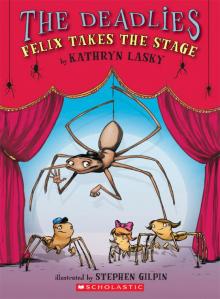 Felix Takes the Stage
Felix Takes the Stage Lucy
Lucy Lone Wolf
Lone Wolf Broken Song
Broken Song The Shattering
The Shattering The Crossing
The Crossing May
May Chasing Orion
Chasing Orion Star Rise
Star Rise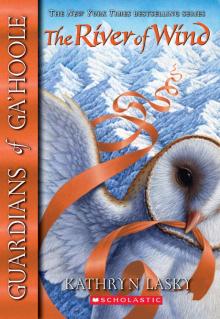 The River of Wind
The River of Wind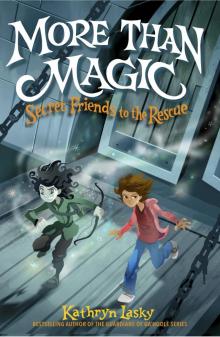 More Than Magic
More Than Magic Born to Rule
Born to Rule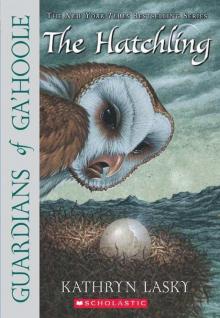 The Hatchling
The Hatchling The Rescue
The Rescue Marie Antoinette: Princess of Versailles, Austria - France, 1769
Marie Antoinette: Princess of Versailles, Austria - France, 1769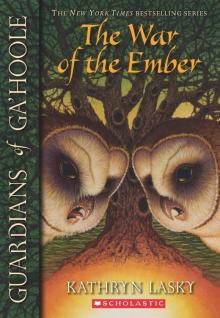 The War of the Ember
The War of the Ember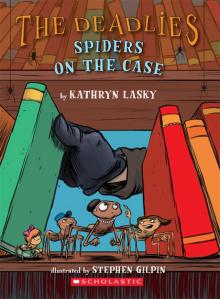 Spiders on the Case
Spiders on the Case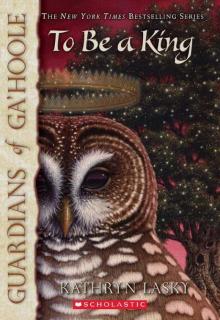 To Be a King
To Be a King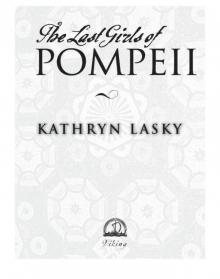 The Last Girls of Pompeii
The Last Girls of Pompeii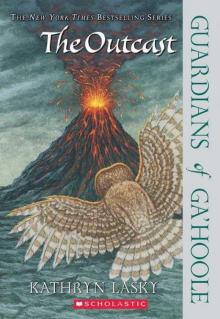 The Outcast
The Outcast Exile
Exile Night Witches
Night Witches Spirit Wolf
Spirit Wolf The Quest of the Cubs
The Quest of the Cubs Frost Wolf
Frost Wolf The Keepers of the Keys
The Keepers of the Keys The Extra
The Extra Blood Secret
Blood Secret Watch Wolf
Watch Wolf Blazing West, the Journal of Augustus Pelletier, the Lewis and Clark Expedition
Blazing West, the Journal of Augustus Pelletier, the Lewis and Clark Expedition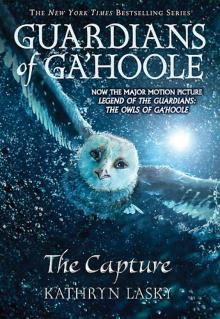 The Capture
The Capture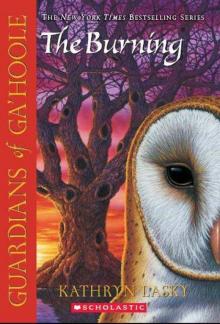 The Burning
The Burning The Journey
The Journey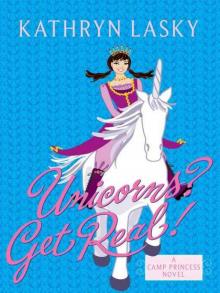 Unicorns? Get Real!
Unicorns? Get Real! The Escape
The Escape Star Wolf
Star Wolf Ashes
Ashes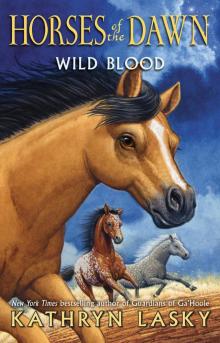 Wild Blood
Wild Blood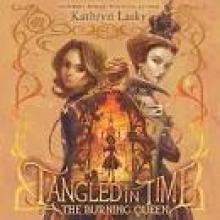 Tangled in Time 2
Tangled in Time 2 The Siege
The Siege Hannah
Hannah Elizabeth
Elizabeth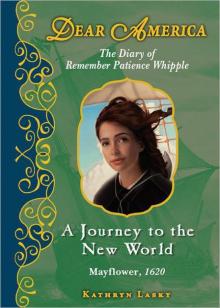 A Journey to the New World
A Journey to the New World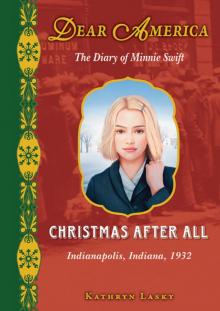 Christmas After All
Christmas After All Mary Queen of Scots
Mary Queen of Scots